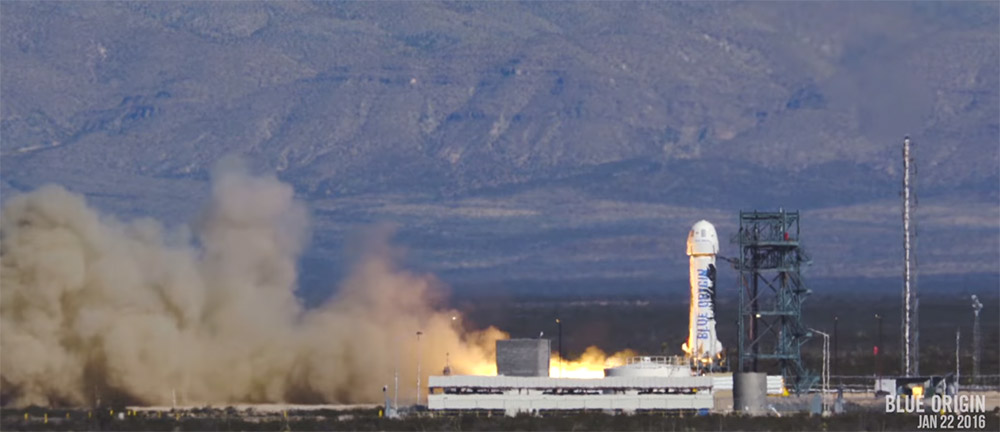Even without the billionaire sarcasm war between Space X CEO Elon Musk and Amazon founder Jeff Bezos, there's no denying that Blue Origin's efforts to get people into space are still exciting. That's doubly so when launches can be repeated with the same hardware too, as it brings costs down for everyone: and that's exactly what Blue Origin has achieved.
Looking to steal a little bit of Space X's thunder, the second Blue Origin launch took the two stage rocket up above the Kármán line, which is the boundary that many accept as where Earth's atmosphere ends and ‘space' begins. It then returned to Earth in separate pieces, using parachutes for the capsule that will one day carry humans up to that historic height, while the first stage booster used its main engine and landing legs to cushion its touchdown.
The important part of this is that this is the second time that very rocket has succeeded like this. Being able to repeat such launches saves hugely on the materials cost of sending hardware out of Earth's atmosphere, which will make it much cheaper for all of us to take a trip into the great black beyond, even for a few minutes. [yframe url='http://www.youtube.com/watch?v=74tyedGkoUc']
The flight required some retooling though. As Bezos explained in the Blue Origin update, the parachutes and the pyro igniters had to be replaced, and the team conducted many checks and updates on several key systems, but that was it. That's much cheaper and simpler than rebuilding an entirely new rocket from scratch.
Can a used rocket fly? Video + a few technical details at https://t.co/8JUKBLg8fi https://t.co/JWpi3yGDWq
— Jeff Bezos (@JeffBezos) January 23, 2016
Of course if you talk to the likes of Neil Degrasse Tyson (or probably Elon Musk) though, there is some debate on whether simply going above the Kármán line is actually space. Many would argue that you are only ‘in' space when you're orbiting a body and therefore not likely to fall back within the atmosphere.
Fortunately then, Bezos and Blue Origin have already spent three years working on an orbital rocket. That's not quite the 10+ Space X has been working on its, so there will be some catching up to do, but it does mean that the Space race of the 21st century is building up steam.
Discuss on our Facebook page, HERE.
KitGuru Says: Good for the Blue Origin team. This is an excellent development and bodes well for future launches. I just can't wait to see how Space X responds now.
 KitGuru KitGuru.net – Tech News | Hardware News | Hardware Reviews | IOS | Mobile | Gaming | Graphics Cards
KitGuru KitGuru.net – Tech News | Hardware News | Hardware Reviews | IOS | Mobile | Gaming | Graphics Cards



